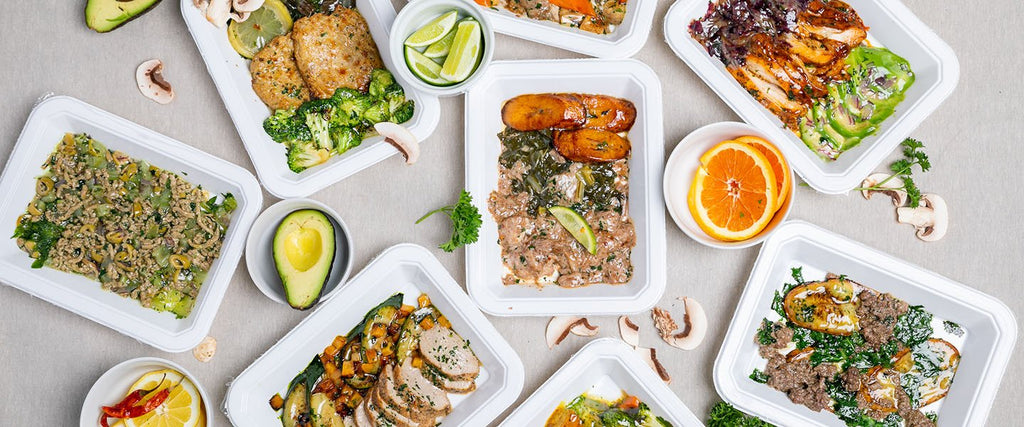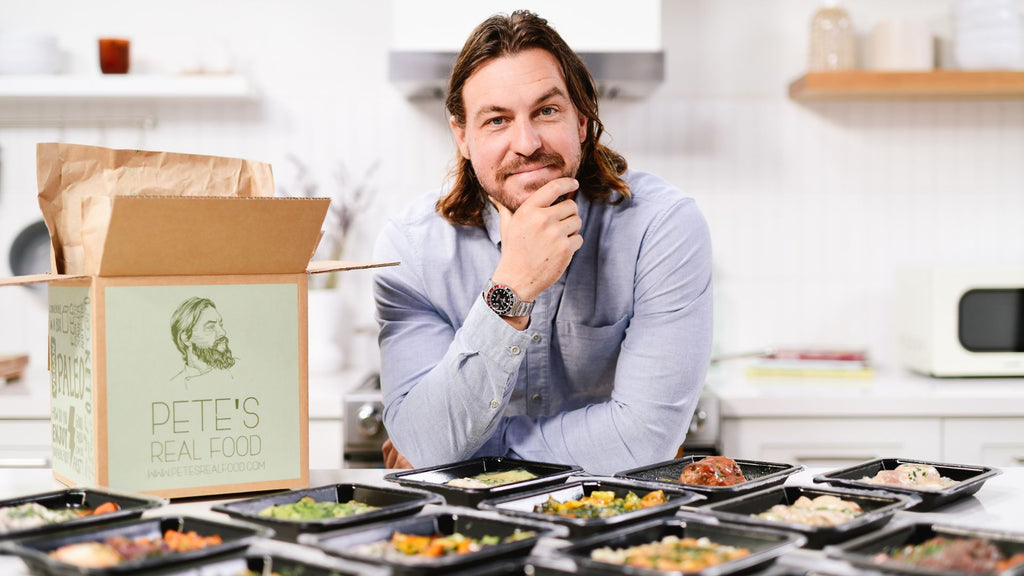Meal delivery services have become increasingly popular in recent years due to their convenience and variety of options. However, their impact on environmental sustainability is a complex issue that involves several factors. These include the sourcing of ingredients, transportation methods, and energy efficiency of operations.
The good news for the meal delivery industry is that it can actually have a smaller carbon footprint than grocery shopping!

Some important research determined that meal delivery produces less food waste than those who choose to grocery shop. This can really resonate if you consider how often you may have bought fresh produce only to throw it out because it was unused and went bad in the fridge.
Furthermore, companies that prioritize sustainable practices, such as using organic and locally sourced ingredients, minimizing packaging waste, and using energy efficient routes and means of transportation for delivery, can have a lower environmental footprint compared to others.
Sustainability & Environmental Impact Of Meal Delivery
Reduced Food Waste
A recent study looked at whether using a meal delivery service helps reduce food waste. Are people better off outsourcing part or all of the cooking process to a company that does some or all of the sourcing and preparation work for them?
The answer was a resounding yes. Results showed that households wasted on average 38% less food when they used a meal service compared to when they bought the ingredients individually. At the grocery store, you often have to buy more of an ingredient that will be used in any given recipe. This means that the rest of the ingredient often goes to waste. By considering this factor, the researchers were able to show that delivery services produce significantly less food waste compared to buying food at a grocery store.
On top of this, the researchers found that food waste in grocery stores is much higher than that found in meal service facilities. Grocery stores must display fresh vegetables in an open-air setting, a feature that often causes food to get spoiled over time before it can be sold. Meal service preparation facilities can better store and refrigerate food before processing, leading to less waste. Further, because of subscriptions to their plans, these facilities can better anticipate the amount of food they need, leading to significantly less waste.
This in turn leads supports the reduction of methane emissions from landfills!
Learn how to reduce food waste even further in this post

Sustainable Packaging
Meal delivery services can choose to make use of sustainable packaging materials, such as compostable or recyclable materials, reducing the amount of single-use plastic waste generated by traditional food packaging.
At Pete’s Real food, we take the environmental impact of our packaging seriously, ensuring our food is not only good for you, but good for the planet as well.
Pete's Meal Trays
All trays are curbside recyclable, just be sure to peel off the film and wash out first. Our trays boast
*40% less waste than standard Thermoform trays
*30% less energy used in production process
*20% less emissions generated in production process
*Up to 20% PCR (post-consumer recycled) content
Pete's Liners
Box liners are curbside recyclable. They are made with a 100% paper interior, cased inside a recyclable plastic outer lining.
They are custom sized to our various box sizes, in order to optimize the packaging process based on your order size.
Pete's Gel Packs
Temperature control packs are made with a tough, recyclable polyethylene plastic that is proven to be puncture-resistant and strong enough not to tear during rigorous handling.
The internal gel product can be reused, donated to local food pantries or drained into the trash with the outer lining placed in the curbside recycle.
Pete's Boxes
Transportation boxes are curbside recyclable and made from approximately 65% recycled materials.
Pete’s Real Food uses an FSC certified manufacturer. The corrugated manufacturing and recycling is one of the most environmentally friendly processes!

Local Sourcing
Grocery stores receive food shipped from all over the world. Pete's works exclusively with local food purveyors. This directly reduces reliance on fossil fuels and the carbon footprint associated with long-distance transportation. Sourcing food locally also supports local economies. When local foods are grown sustainably, using humane animal practices and without pesticides and chemical fertilizers, you can also be confident that your food is healthier as well as more environmentally friendly. Bottom line is locally grown food tastes better because it is seasonal, recently harvested and did not have to travel too far to get to your plate
Read on here for more benefits of sourcing your food locally.
Efficient Delivery Routes
Meal delivery services can optimize their delivery routes to minimize mileage and fuel consumption, which can lower carbon emissions associated with transportation. Pete’s Real Food uses FedEx for delivery, which has lower last-mile transportation emissions of any delivery company.

Promoting Energy Efficiency
Meal delivery companies may invest in energy-efficient equipment and practices. This allows their facilities to reduce the energy consumption and greenhouse gas emissions associated with food preparation and storage.
Consumer Behavior
Customers also play a crucial role in the sustainability of meal delivery services. Choosing companies that prioritize sustainability, opting for reusable or recyclable packaging when available, and minimizing food waste by consuming leftovers can all contribute to reducing the environmental impact of meal delivery.
Choosing Environmentally Conscious Meal Delivery Services
To maximize waste reduction with meal delivery, consider services that focus on sustainability and reducing environmental impact. Look for providers that:
- Source ingredients locally and sustainably.
- Ethically source their ingredients
- Use eco-friendly packaging.
- Offer organic or whole food options.
- Have clear policies on reducing food waste.
At Pete’s Real Food we go to great lengths to ensure we deliver the highest quality food that is not only good for you, but good for the planet. You can review our sustainability practices here

Having delicious, chef-prepared, seasonally inspired meals made with only the best ingredients is important when choosing the food to feed you and your family. Our extensive menus change weekly and appeal to all tastes and many types of nutrition plans from Paleo to Keto to Vegan to AIP. We even do kids lunches!!!!
Check out this week’s choices and order your family’s favorites here >>>>>>
Overall, meal delivery services have the potential to contribute to environmental sustainability through various initiatives aimed at reducing food waste, optimizing transportation, supporting local economies, using sustainable packaging, promoting plant-based eating, and improving energy efficiency. Each choice you make, however small, can have a cumulative impact for the well-being of yourself, your community and your environment.
